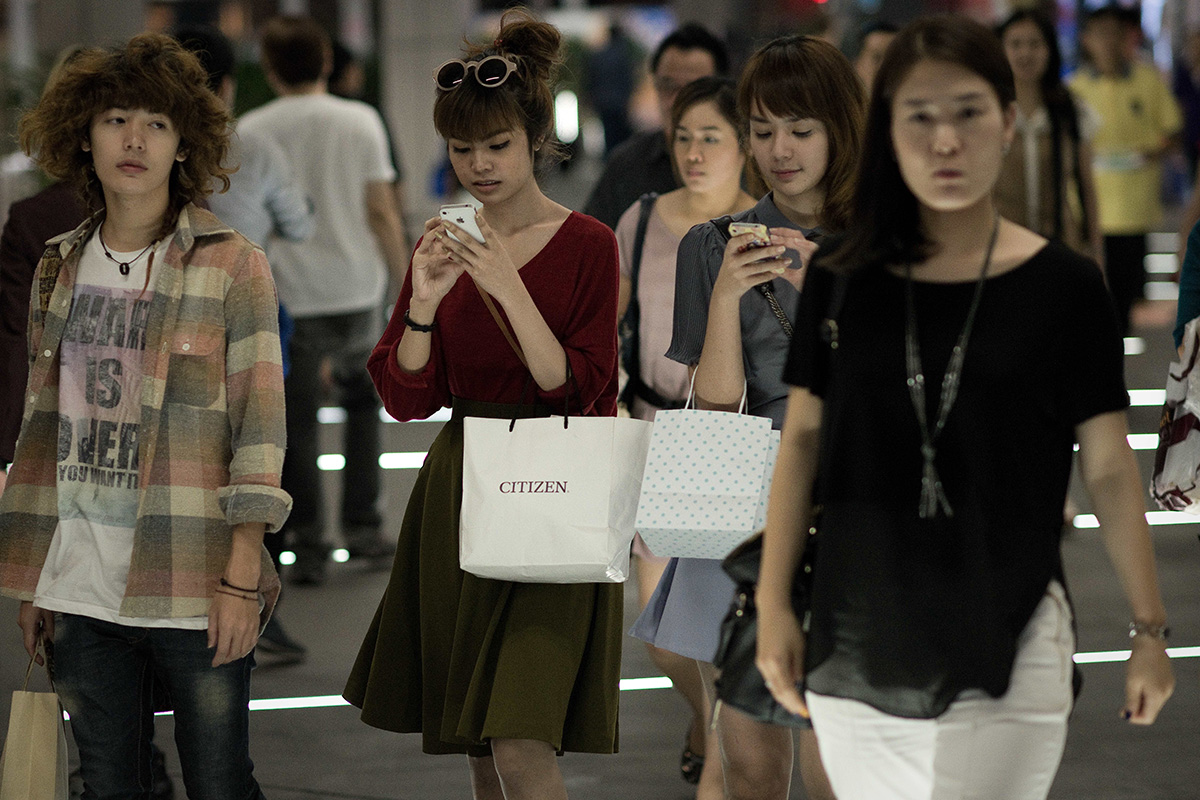Thailand has seen an explosion of internet shopping in recent years as consumers become more tech-savvy. And if that’s anything to go by, e-commerce in Southeast Asia is taking off as well.
Online retail sales in Thailand of everything from washing machines and televisions to fish sauce are growing more than 100 percent, far outpacing purchases made at traditional stores, where sales are rising about 10 percent.
That’s down to a combination of stronger and faster internet speeds in the country and the success of online merchants, like Lazada. Thailand’s third-biggest mobile-phone company, Total Access Communication Pcl, estimates that Thais spend up to six hours a day on social media websites, like Facebook and Youtube.
Thailand is the only country in Southeast Asia that breaks down retail sales data into an online category, providing a useful guide of what e-commerce growth may be like in the region, according to Maybank Kim Eng Holdings Ltd.
While online sales in Southeast Asia have been growing strongly, they still account for less than 4 percent of overall retail purchases, Maybank economists Chua Hak Bin and Lee Ju Ye said in a report.
Bigger markets, like China and South Korea, already have higher penetration rates of online retailing of 16 percent and 18 percent respectively. That shows the potential for Southeast Asia, where e-commerce sales could grow to 5 percent to 10 percent of overall retail purchases over the next five years, according to Maybank.
Alibaba Group Holding Ltd. founder Jack Ma recently signed up to be a member of a government panel in Indonesia tasked with steering the e-commerce industry in Southeast Asia’s most-populous nation. Macquarie Research estimates online retailing in the country can reach $65 billion by 2020.
The surge in e-commerce and a lack of official data means the health of the consumer in Southeast Asia may be underestimated, according to Maybank. Tracking consumer patterns will involve more than just looking at official retail sales, it said. – Bloomberg
